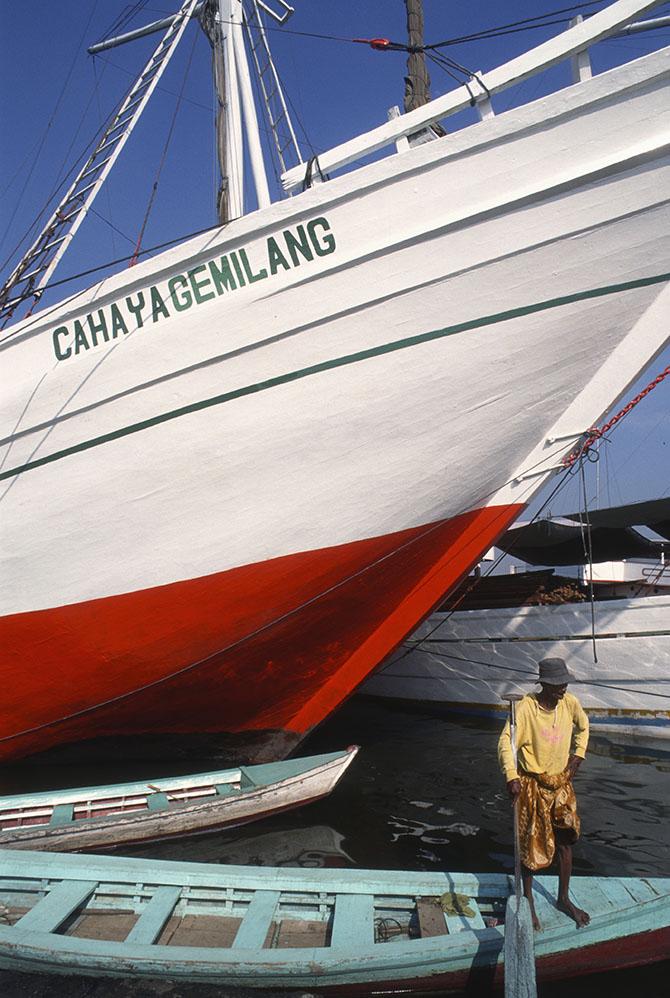
Within the last few years, the role of Indonesia’s Armed Forces has also been a matter of debate. I feel that the basic concept of dwifungsi – the military’s dual political and security role during the Soeharto regime – will not return. Yet, the “partnership” between former leaders of the Armed Forces and political parties should also be monitored in the foreseeable future, although the Armed Forces will strive to stand above all politics. Recent indications and trends should be carefully studied and observed, especially the relationship between socioeconomic development and stability, and the role of the Armed Forces, including the relationship between the National Police and the Armed Forces. It has been surmised that as greater stability and socioeconomic development occur, the less prominent the Armed Forces will be in sociopolitical functions, in stabilizing and “dynamizing” Indonesian society. How to develop a more appropriate role for the Armed Forces given the changing domestic, regional and international situations will be a challenge for the military’s thinkers. The reality is that the Armed Forces, in its long history of struggle for national independence, unity and development, have always defended the interests of the country and the people. Yet, different perceptions seem to have surfaced lately. There is a suspected competition between elements of the Armed Forces and elements of the National Police. If this is true, it is cause for concern. It should be an immediate task of the Armed Forces and the National Police to quash, carefully and judiciously, such a perception among the public, no matter how small or insignificant it may appear. They should continue to take every measure to safeguard their roles and reputations as loyal defenders of the nation.
The regional context
Indonesia’s foreign policy should strive to protect Indonesian national interests, especially its national development plans, in both the short and long term. Indonesia must take advantage of the present and rare mood in the region for peace, economic development and regional cooperation, particularly given the rise of Asia in the 21st century. It is predicted that by 2050, Asia will account for about 50 percent of global gross domestic product, compared to about 27 percent today. The situation can be viewed as a series of geopolitical and strategic concentric circles. There are at least three theaters in which Indonesia’s foreign policy is operating, or will have to operate.
The rise of China is one of the most interesting developments to watch in this region in the coming years. Since Beijing adopted the Four Modernizations policy in 1978 – agriculture, science and technology, industry and defense – China has become a maritime and continental power. Several factors are interesting in this regard:
- China’s plan to buy a large number of long-range MIG aircraft, dozens of submarines and even aircraft carriers.
- Its recent difficult relations with the United States and to some extent with Japan, as if to reflect a possible new confrontation in Asia, in particular the Korean Peninsula, to increase Beijing’s political strength.
- China’s policy regarding Taiwan, which seems to indicate a willingness to maintain the status quo. China and Taiwan, whose leaders met for the first time ever last November, also appear to have agreed on the principle of “One China,” with one country and two systems. Cross-strait relations have therefore improved considerably over the last several years.
- China’s increasingly assertive policy in the South China Sea and the East China Sea.
- Its nuclear policy, in which it continues to conduct nuclear weapons testing.
All of this is worth careful monitoring by China’s neighbors, especially the Asean countries. It is worth noting that while many countries, including the United States and Southeast Asian countries, say that they are pursuing a policy of “constructive engagement” with China, it appears that China may not believe them, in particular with regard to the South China Sea. Equally, while China professes to pursue a policy of “peaceful cooperation” with the countries around it and beyond, including in Southeast Asia, suspicion remains about Beijing’s intentions due to various historical reasons.







 resized.png)
